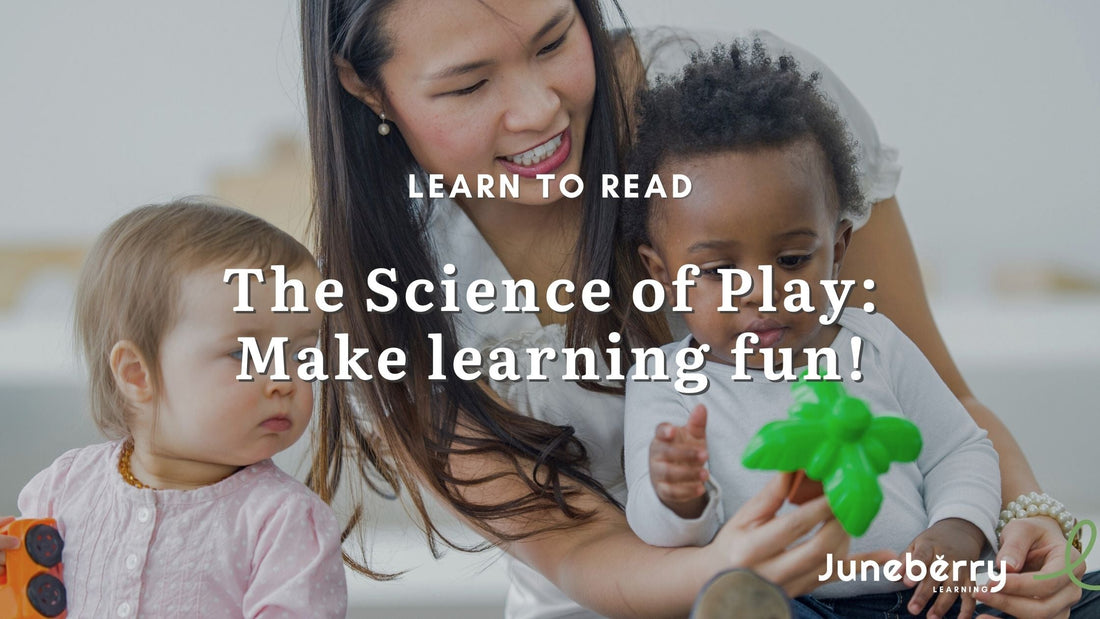
Why We Focus on Playful Learning
Share
Play is the pathway to learning for children. Play provides opportunities for exploration and social interaction. It creates positive emotions and fosters imagination and creativity. Play improves gross and fine motor skills and provides a sense of accomplishment. Play creates meaningful opportunities for exploring and learning about the world.
“Play is often talked about as if it were a relief from serious learning. But for children, play IS serious learning. Play is really the work of childhood.” Mr. Fred Rogers
Did you know there is an International Day of Play? Declared by the United Nations, the first ever International Day of Play took place on June 11, 2024. It is intended to serve as a global reminder of the importance of promoting play for all people, especially children. Play is included as a basic right of every child in Article 31 of the UN Convention on the Rights of the Child.
Play Creates Positive Social/Emotional Skills
Play creates bonds and builds strong relationships. Most children love playing with other children and adults. It is the perfect way to learn with your child and learn about your child. The more you know about them, the easier it will be to support their learning.
Play provides an opportunity for interaction and connection across a range of age groups. Through playing with others, children learn about their own emotions and develop empathy for others. They build resilience by learning how to be a gracious winner and how to deal with not always being first. Play helps children negotiate rules and manage the social expectations of others.
Play is a positive mood booster. It’s an opportunity to have fun and share joyful experiences. Through engaging and stimulating play experiences, children develop a sense of accomplishment, conquer fears, learn about leadership, and increase self motivation for learning.
Play Improves Learning
Play as a pathway to learning is strongly supported by research. Through play, children practice skills over and over again. We know that practice is needed to move knowledge into long term memory. Play makes practice more engaging and enjoyable.
Children process life experiences and make sense of the world around them by reenacting what happens in real life. Tuning in to what your child is doing during playtime will give you insights into how they are experiencing and processing the world.
When our girls were young, a dinosaur skeleton was dug up in the river valley near my childhood home. I told the girls that we would go to the dinosaur dig, on the weekend. My 3 year old asked if it would run past us. Realizing she thought it was alive, I replied, “No, it’s dead and it’s just bones.” Later, I overheard her talking to herself while playing in her room. She said, “Well if it’s a dinosaur and it’s just bones, how’s it going to dig?” Processing the conversation through play was helping her make sense of the double meaning of the word dig. Overhearing her gave me a heads-up for helping her understand that language is complex.
-Maxine
Play provides opportunities to focus and concentrate which supports reasoning skills and improves memory. During play, children develop creativity and flexible thinking by solving problems, imagining possibilities, and designing new inventions. These are skills that will serve them well in our ever changing world.
Play Builds Healthy Bodies
When children play, they actively use their bodies to interact with the world around them. This helps them develop large (gross motor) and small (fine motor) muscle control.
Did you know that the fine motor control required for handwriting is actually dependent on core body strength? You can read more about that in our PreWriting Skills post. Providing lots of outdoor experiences and making time to enjoy playground structures will help your child build core body strength.
Young children develop muscle control through playing games like Peek-a-Boo, Pat-a-Cake, and Hide and Seek. They learn to track objects and understand that objects can be covered but are still there (object permanence). Playing with toys helps develop fine motor skills and hand-eye coordination. A strong healthy body is important for social/emotional well being and sets your child up for learning success.
Summary
Play supports intellectual, social/emotional, and physical growth. It’s the pathway to learning for young children. Yogman et al (2018) suggests that play is so important, pediatricians should be provided with information about its benefits and actually write prescriptions for play. Healthy bodies go hand in hand with healthy minds.
At Juneberry Learning, we believe that the best way for children to learn is through playful experiences that teach them about the world and provide the practice they need to remember what they have learned.
Learning to read through playful experiences with a caring adult is the perfect recipe for success. Bite sized learning of just 5 minutes a day, playing games from the Alphabites Game Pack, will help your child learn letter sounds and shapes. At Juneberry Learning, we want to make learning to read a joyful experience for you and your child.
We are here to support you and your child. Please reach out and let us know how we can help you hello@juneberrylearning.com.
Sources
International Day of Play: A Day for Play. https://www.internationaldayofplay.org/
Blinkoff, E., Nesbitt, K. T., Golinkoff, R. M., & Hirsh-Pasek, K. (2023). Investigating the contributions of active, playful learning to student interest and educational outcomes. Acta Psychologica, 238, 103983. https://doi.org/10.1016/j.actpsy.2023.103983
Mardell, B., Ryan, J., Krechevsky, M., Baker, M., Schulz, T. S., and LiuConstant, Y. (2023). A pedagogy of play: Supporting playful learning in classrooms and schools. Cambridge, MA: Project Zero. https://pz.harvard.edu/sites/default/files/PoP%20Book%203.27.23.pdf
Yogman, M., Garner, A., Hutchinson, J., Hirsh-Pasek, K., Golinkoff, R. M., Baum, R., ... & COMMITTEE ON PSYCHOSOCIAL ASPECTS OF CHILD AND FAMILY HEALTH. (2018). The power of play: A pediatric role in enhancing development in young children. Pediatrics, 142(3). 10.1542/peds.2018-2058
